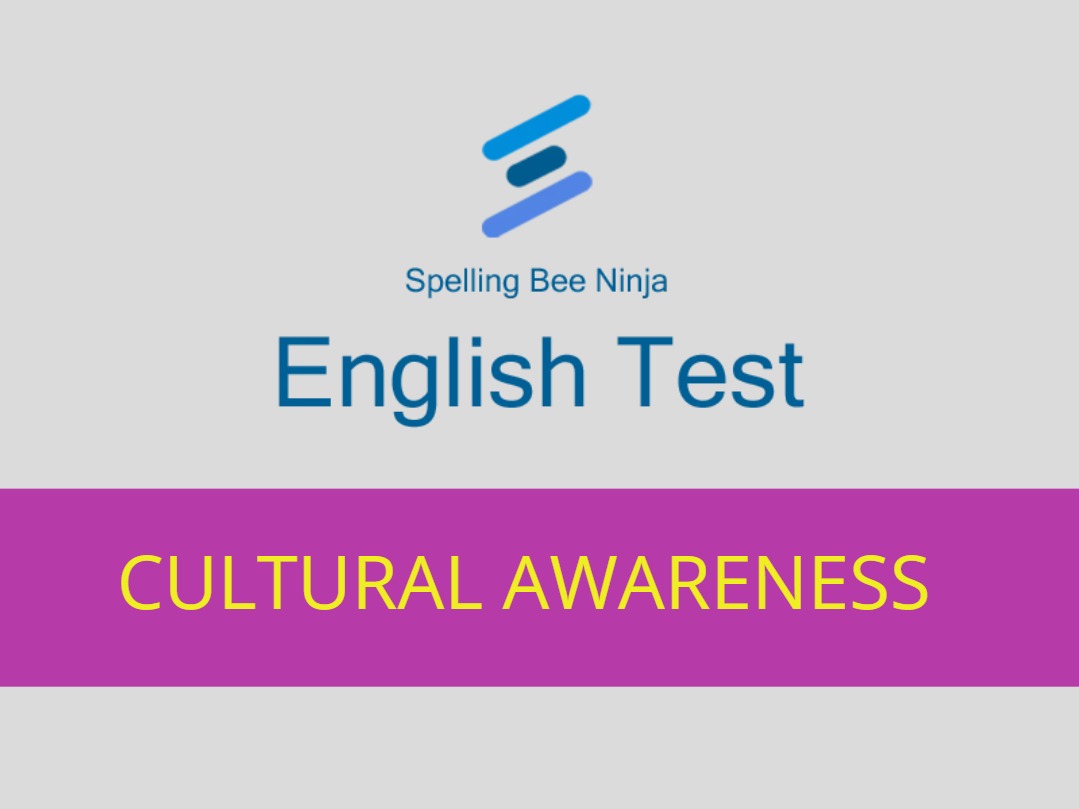What is cultural awareness?
Learning a new language involves much more than mastering vocabulary and grammar. To truly communicate effectively, ESL (English as a Second Language) learners must also develop cultural awareness. Cultural competence is essential because language is deeply intertwined with social norms, values, and customs. A seemingly harmless phrase or behavior in one culture might be perceived as offensive or inappropriate in another. These subtle cultural misunderstandings can lead to embarrassment, confusion, or even unintentional disrespect.
Many ESL learners are so focused on pronunciation and verb tenses that they overlook how important cultural knowledge is to being understood and accepted. For instance, a learner might use the correct words but come across as too direct, making the listener uncomfortable. Others may avoid eye contact to show respect, not realizing it might be misinterpreted as dishonesty in English-speaking cultures. These are not errors of language but of social awareness.
This quiz is designed to help ESL learners identify and avoid some of the most common cultural mistakes. It focuses on real-life situations that test your ability to interpret and react appropriately based on the expectations and norms of English-speaking communities. You’ll be asked about politeness strategies, conversation norms, body language, and more.
Each question presents a situation or statement and provides multiple possible answers. Only one is correct, and an explanation follows to reinforce the concept. This isn’t just a test of knowledge — it’s an opportunity to reflect on your cultural instincts, challenge assumptions from your native culture, and adopt more effective communication strategies for English-speaking environments.
If you’re a teacher, parent, or homeschooling facilitator, you can also use this quiz to guide discussions and create role-play scenarios. Understanding the why behind the right answer helps learners integrate the lesson on a deeper level.
Take your time, read each question carefully, and reflect on your experiences. After completing the quiz, review the explanations to ensure a full understanding of each cultural concept. Good luck!
- 🎓 English Test – Parts of Speech
- 🎓 English Test – The Future Perfect Continuous Tense in English
- 🎓 English Test – Pronouns in English
- 🎓 English Test – Sentence Structure
- 🎓 English Test – Future Perfect Tense
- 🎓 English Test – Future Continuous Tense
- 🎓 English Test – Future Simple Tense
- 🎓 English Test – Past Perfect Continuous Tense
- 🎓 English Test – Past Perfect Tense
- 🎓 English Test – Past Continuous Tense
- 🎓 English Test – Present Simple Tense
- 🎓 English Test – Past Simple Tense
- 🎓 English Test – Present Perfect Continuous Tense
- 🎓 English Test – Present Perfect Tense
- 🎓 English Test – Present Continuous Tense
- 🎓 English Test – The 12 Tenses in the English Language
- 🎓 English Test – Modal Verbs
- 🎓 English Test – Could, should and ought
- 🎓 English Test – Will vs Shall
- 🎓 English Test – What vs Which
- 🎓 English Test – Suffixes
- 🎓 English Test – Prefixes
- 🎓 English Test – Pronunciation
- 🎓 English Test – Misspelled Words
- 🎓 English Test – Writing an Essay
- 🎓 English Test – Writing an Email
- 🎓 English Test – Idiomatic Expressions
- 🎓 English Test – Business English
- 🎓 English Test – Writing a Letter
- 🎓 English Test – Writing Numbers
- 🎓 English Test – Adjectives
- 🎓 English Test – ESL Vocabulary Essentials – Intermediate
- 🎓 English Test – ESL Vocabulary Essentials – Advanced
- 🎓 English Test – Formal vs. Informal Language
- 🎓 English Test – ESL Vocabulary Essentials – Beginner
- 🎓 English Test – English Fluency Check
- 🎓 English Test – Mastering Imperatives in English
- 🎓 English Test – Cultural Awareness
- 🎓 English Test – Difficult Words
- 🎓 English Test – Comparative and Superlative Adjectives
- 🎓 English Test – Types of Phrases
- 🎓 English Test – Conditionals
- 🎓 English Test – Types of Adverbs
- 🎓 English Test – Clauses
- 🎓 English Test – Homophones
- 🎓 English Test – Possessives
- 🎓 English Test – Noun Types
- 🎓 English Test – Gerunds and Infinitives
- 🎓 English Test – Question Formation in English
- 🎓 English Test – Understanding Common Sentence Errors
- 🎓 English Test – Direct and Indirect Speech
- 🎓 English Test – Conjunction Words
- 🎓 English Test – Tricky Words
- 🎓 English Test – Prepositions
- 🎓 English Test – Adverbs
- 🎓 English Test – Active and Passive Voice
- 🎓 English Test – How to use Punctuation
- 🎓 English Test – An overview of English tenses
- 🎓 English Test – How to use Articles in English


